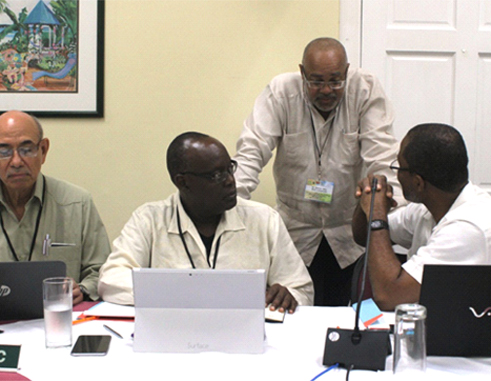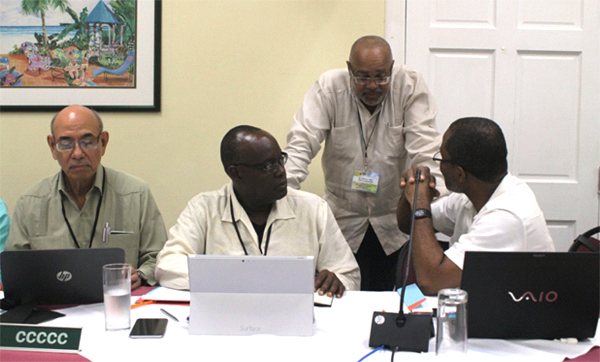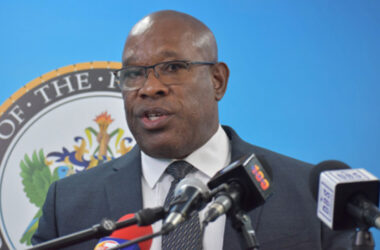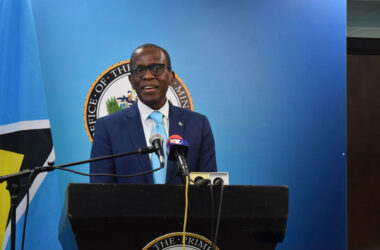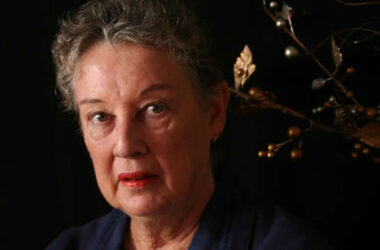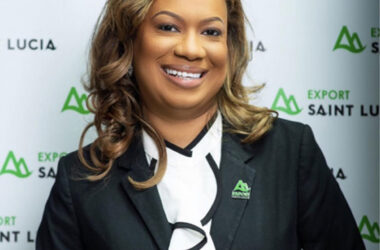DIRECTOR-GENERAL of the OECS Commission, Dr. Didacus Jules, is urging the region’s policymakers to come up with a cohesive plan as it relates to climate change. He is also calling on them to do the work necessary to facilitate the region’s adaptation to the environmental issue.
Dr. Jules was among the speakers delivering remarks at last Monday’s official opening ceremony of a meeting of Caribbean climate change negotiators here this week ahead of the upcoming talks in Paris, France scheduled for December.
Close to three dozen negotiators from Trinidad and Tobago, Saint Vincent and the Grenadines, Saint Kitts and Nevis, Guyana, Jamaica, Grenada, Saint Lucia, Barbados, The Bahamas, Antigua and Barbuda, Dominica, the Caribbean Community Climate Change Centre (CCCCC), and the High Level Support Mechanism (HLSM) for LDC and SIDS on Climate Change met at Bay Gardens Hotel for the high-level meeting.
Dr. Jules urged the negotiators to “shape a coherent and convergent Caribbean agenda, a framework around which we can all agree.” Such a framework, he said, “must be flexible, allowing all players to work at a regional level but also allowing for distinctions and idiosyncrasies among member states.”
“If we try to do a one-size-fits-all or single template, that is going to be fraught with problems,” Dr. Jules said. “We also need to be very clear about where our best interests are going to be in this whole climate change arena: what are the things that we would like to get out of this and how do we roll out from the international level of treaties and protocols and funding mechanisms to make a difference on the ground in the member states.”
Dr. Jules explained that the real test of climate change is at the level of the coastal villages, areas where people are prone to floods and other disasters. Increasing levels of disasters in member states due to the impact of hurricanes, he said, makes it “incumbent on us not just to work at the level of regional protocols and international relations, but also to translate all of this at a local level as well.” A change in posture at the national policy level, he said, also becomes imperative.
“The contradictions at the local level need to be faced squarely. There is a great deal of work that needs to be done at the level of the various member states to bring a lot of our building codes and so many other protocols and laws and mechanisms in line with the principles of adaptation to climate change. If that work is not done – notwithstanding whatever funding and international support we would have received – (everything we do) will be undone by the absence of national preparation,” the OECS Director-General said.
Dr. Jules told the participants that the OECS will continue to play as supportive a role as is possible or required to ensure that this process meets its objectives. He said that with Martinique now being an Associate member of the OECS, the neighbouring French department has given its assurance that the upcoming Paris meeting “is being given the highest level of priority by the French.”
“They’ve said to us that they’re willing to work with the OECS in particular to ensure that the concerns of small island member states and developing countries are championed by no less a person than the French president himself,” Dr. Jules said.
Following this week’s meeting, the negotiators will go into actual negotiations in Geneva, Switzerland next week. Other meetings are also planned for the rest of the year.
The Saint Lucia meeting was being held as Caribbean heads of government attended the first-ever Caribbean Energy Security Summit at the U.S. State Department in Washington, D.C. Saint Lucia’s Prime Minister Dr. Kenny Anthony and Minister for Sustainable Development, Energy, Science and Technology, Dr. James Fletcher, attended that Washington, D.C. summit. Dr. Anthony, who has lead responsibility for CARICOM’s sustainable development and climate change mandate, was scheduled to address the meeting on issues affecting Small Island Developing States


